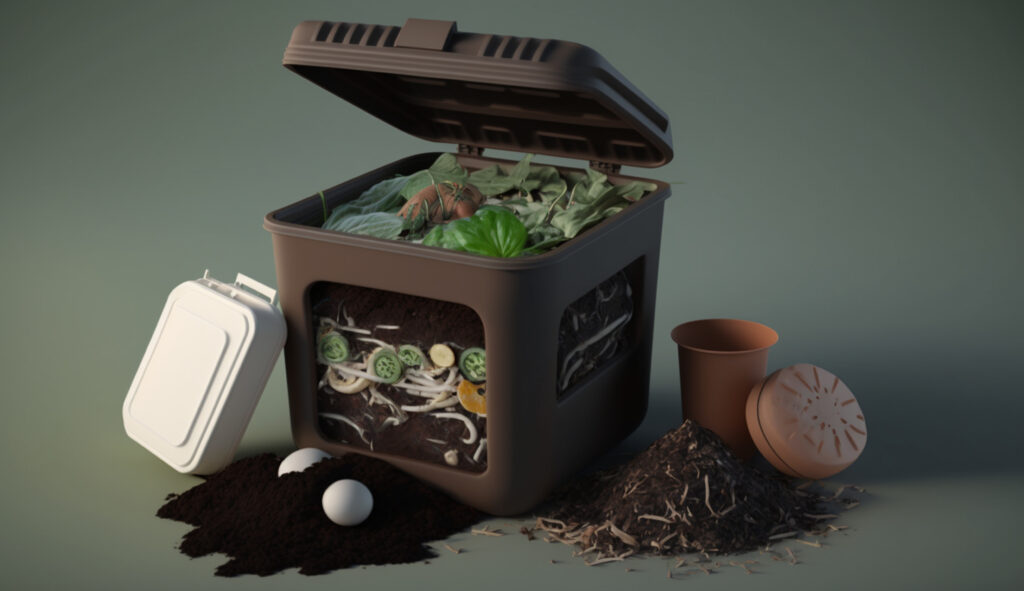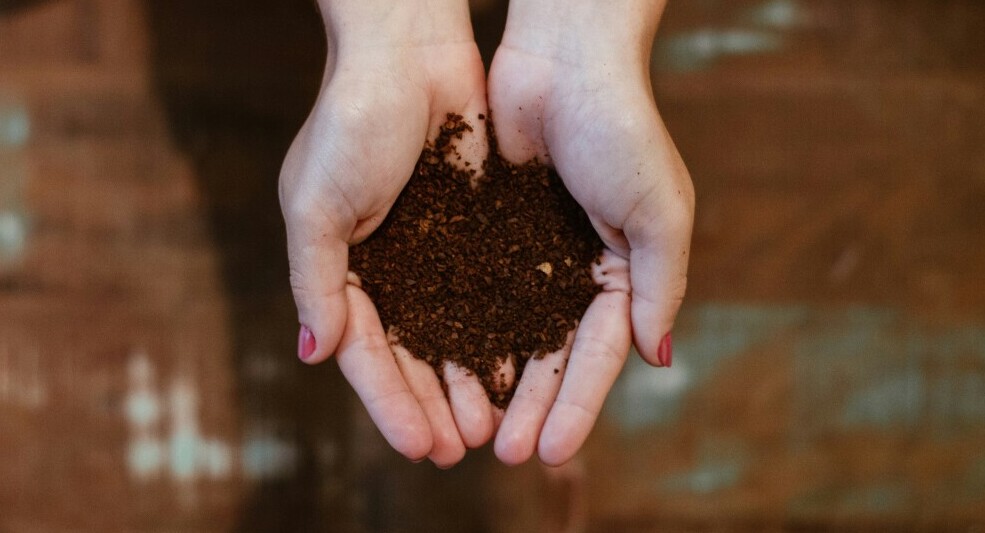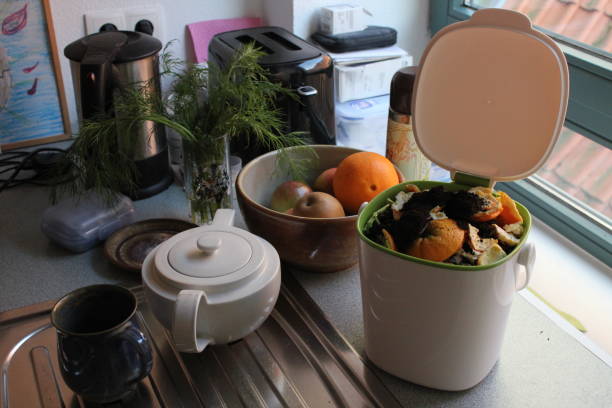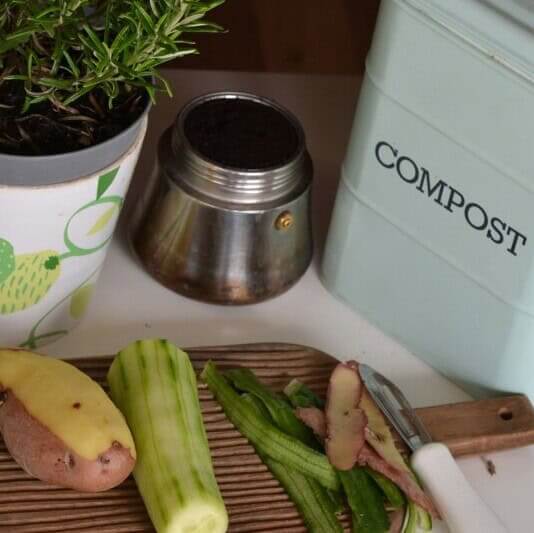In a world grappling with environmental challenges, the concept of sustainability has gained unprecedented significance. One of the key contributors to a sustainable lifestyle is composting, a practice that transforms kitchen waste into nutrient-rich soil. While traditional composting may seem daunting for urban dwellers, the emergence of indoor composting kits has revolutionized the way we can contribute to a greener planet.
This article explores the myriad benefits of indoor composting, shedding light on how these innovative solutions bridge the gap between convenience and environmental responsibility.
8 Benefits of Indoor Composting
1. Space Efficient and User Friendly
The kits are designed with the modern urban lifestyle in mind. Unlike traditional composting methods that require ample outdoor space, these kits are compact and fit seamlessly into any kitchen or living space. They are user friendly, making composting accessible even to those with limited gardening experience. With step-by-step instructions and minimal maintenance requirements, these kits are the perfect solution for individuals seeking a hassle-free way to reduce their carbon footprint.

2. Reducing Food Waste
One of the primary benefits of the kits lies in their ability to tackle the pervasive issue of food waste. According to environmental studies, a significant portion of household waste comprises of food scraps. Indoor composting empowers individuals to divert kitchen scraps such as fruit and vegetable peels, coffee grounds, and eggshells away from landfills. By converting these organic materials into nutrient rich compost, users actively contribute to minimizing the environmental impact of food waste.
3. Creating Nutrient-Rich Soil
Compost generated from indoor composting is a powerhouse of nutrients. The controlled decomposition process within these kits ensures that the resulting compost is rich in essential elements like nitrogen, phosphorus, and potassium. This nutrient dense soil conditioner enhances plant growth and boosts soil fertility. Whether you have a small balcony garden or a collection of houseplants, the compost produced by indoor composting provides an eco-friendly alternative to chemical fertilizers.

4. Odour Control and Pest Management
Concerns about unpleasant odours and pest infestations often deter individuals from embracing composting. Indoor kits, however, address these concerns effectively. Their enclosed design minimizes odours, thanks to the controlled aeration and carbon to nitrogen ratio. Additionally, the contained environment reduces the risk of attracting pests, making indoor composting an odour free and pest resistant alternative.
5. Educational Value
Beyond their environmental impact, the kits serve as valuable educational tools. They provide an opportunity for individuals, families, and even schools to learn about the natural cycle of decomposition and the importance of waste reduction. Watching organic materials transform into nutrient rich compost fosters a sense of connection with the environment and encourages a more sustainable mindset.
6. Year-Round Composting
Indoor composting liberates individuals from the constraints of seasonal composting. Traditional outdoor composting may slow down or even come to a halt during harsh weather conditions, limiting the composting process. Indoor composting, on the other hand, can occur year-round, ensuring a continuous supply of nutrient rich compost regardless of the external climate. This aspect makes these kits particularly appealing for those living in regions with extreme weather variations.

7. Community Impact
The adoption of the kit extends beyond individual households, contributing to a broader community impact. As more people embrace sustainable practices, the collective reduction in organic waste, benefits local waste management systems. Communities become less reliant on landfill disposal, which, in turn, alleviates the environmental strain associated with waste processing and disposal.
8. Carbon Footprint Reduction
Indoor composting plays a crucial role in reducing carbon footprints by curbing the need for transportation and processing of organic waste in landfills. When organic matter decomposes in landfills, it generates methane-a potent greenhouse gas. By composting at home, individuals actively participate in mitigating greenhouse gas emissions and contribute to a more sustainable, low carbon future.
In the quest for a more sustainable future, indoor composting kits emerge as champions, seamlessly blending environmental responsibility with convenience. These compact, user-friendly systems not only address the critical issue of food waste but also empower individuals to play an active role in nurturing the planet. By transforming kitchen scraps into nutrient rich compost, the kits offer a tangible and accessible means for everyone to contribute to the global movement towards sustainability. As we navigate the challenges of the 21st century, these innovative solutions pave the way for a greener, healthier, and more environmentally conscious world.
Frequently Asked Questions
1. Can I compost all types of food waste with an indoor composting kit?
Most indoor composting kits are designed for fruit and vegetable scraps, coffee grounds, and eggshells. Some systems, like Bokashi, can also handle meat, dairy, and cooked food. Always follow the guidelines provided with your specific kit.
2. Does indoor composting smell bad or attract pests?
Not at all. Modern indoor composting kits are built with odour control in mind, using airtight lids and microbial additives to prevent smells. Their enclosed design also helps keep pests at bay, making composting clean and convenient.
3. How long does it take to get usable compost?
Depending on the composting system, you can start seeing results in as little as 2–4 weeks. Bokashi systems ferment waste quickly, while others like electric composters may produce compost even faster.
Discover the Bokashi Composter – the ultimate eco-friendly solution for turning food scraps into nutrient-rich compost. Perfect for small spaces and urban lifestyles.
Affiliate Disclosure:
Some of the links in this post may be affiliate links. This means if you click on the link and make a purchase, I may earn a small commission – at no extra cost to you. Rest assured, I only recommend products or services I truly believe in and think you’ll find valuable. Thank you for supporting ecotiga.com and helping me continue to provide helpful content.
#eco #ecofriendly #sustainable #zerowaste

